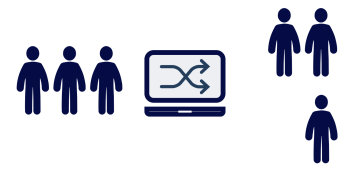
Chemotherapy after Surgery for People With High-Risk Pancreatic Neuroendocrine Tumors
What is the purpose of this clinical trial?
|
Surgery is the main treatment for pancreatic neuroendocrine tumors. But sometimes there are signs that a tumor is high-risk, meaning it is more likely to come back. Instead of watching and waiting to see if high-risk tumors come back, researchers want to find out if people benefit from further treatment after surgery. This study aims to find out if chemotherapy can help prevent high-risk tumors from returning. |
Lea la versión en español. |
Chemotherapy in this study uses the drugs capecitabine and temozolomide. The Food and Drug Administration (FDA) has approved these drugs to treat other cancers. The FDA has not yet approved combining the drugs for pancreatic neuroendocrine tumors.
This trial is set up to find out:
- If treating high-risk pancreatic neuroendocrine tumors with chemotherapy after surgery can lower the chance of the tumors coming back
- If chemotherapy after surgery helps people with high-risk pancreatic neuroendocrine tumors live longer
- How safe it is for people with high-risk pancreatic neuroendocrine tumors to get chemotherapy after surgery
Why is this trial important?
There is no proven additional treatment after surgery for people with high-risk pancreatic neuroendocrine tumors. Most often, doctors watch a patient’s condition after surgery and treat symptoms as needed. This trial is a way to find out if chemotherapy after surgery is a better treatment plan for people with high-risk tumors.
Who can be in this trial?
This trial is for adults, age 18 or older, who had surgery to remove a high-risk, grade 2 or 3 pancreatic neuroendocrine tumor. Your doctor determines the risk level based on certain features of the tumor and the signs and symptoms that the tumor causes.
This trial may be for people who:
- Had a high-risk tumor removed in the past 3 months
- Had a high-risk tumor that is considered well-differentiated (under a microscope, the tumor cells look almost like healthy cells)
This trial is not for people who:
- Received other treatment for the tumor before surgery
- Have cancer that has spread to other places in the body
- Have an uncontrolled infection
- Have poor liver or kidney function
- Are pregnant
What treatments will I get?
A computer will randomly assign you to one of 2 groups.
- You have a 2 in 3 chance of being in Group 1.
- You have a 1 in 3 chance of being in Group 2.
|
Your doctor will not have control over which group you will be assigned to. This helps make sure the study results are fair and reliable.
How long will I be in the trial?
You will be in the study for 5 years. For patients assigned to receive chemotherapy, treatment lasts about 4 months. All people in the study will have regular study visits and health checks for a total of 5 years.
Are there costs? Will I get paid?
The study does not provide the drugs capecitabine and temozolomide for free. But your insurance may cover the costs of these drugs. Ask your health care provider and insurance provider what costs will and won’t be covered in this study. You will not be paid for joining the study.
Where can I find more information about this trial?
- Talk with your health care provider
- Call the National Cancer Institute at 1-800-4-CANCER
- Go to www.ClinicalTrials.gov and search the national clinical trial number: NCT05040360
- For a list of trial locations, visit swog.org/NCI-S2104

